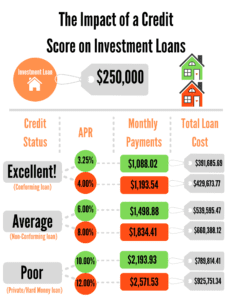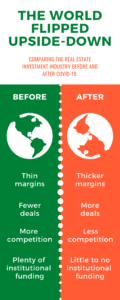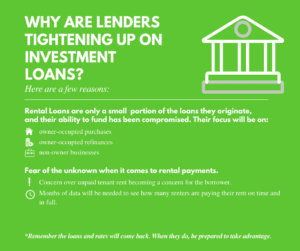Investor Mortgage Report 6.15.2020
Categories: Blog Posts, Resources, Tips, Trends Tuesday
What We Know:
Rates on the conventional side have maintained strong with rates in the low 3’s. If you’re still wondering whether or not you should refinance, we’re going to dive into what we call ‘The Tipping Point Rate.’
This week, we’re seeing more larger non-conventional companies dipping their toes back into the investor loan water. This gentle ease back in helps increase liquidity, but it still comes at a price: Lower LTVs and higher costs.
What This Means for You:
There is an exact rate where it’s wise to refinance. We call this ‘The Tipping Point Rate.’ This specific rate is the point where you won’t pay a penny more in principal and interest over the life of the loan.

Going above this point might increase your cash flow, but it will end up costing you more in the long run. Sometimes this means it’s better to stick with what you have now. We’re focused on putting more money in your pocket and less in the bank’s pocket.
This is for investors looking to increase monthly cash flow without adding lifetime cost of debt. So, if you’re solely concerned about your monthly cash flow, this probably isn’t the program for you.
So how does this work? Let’s take a look at an example.
Joe is an investor who is looking at refinancing to increase his cash flow every month. But not if it means paying tens of thousands of dollars extra to the bank in principal and interest.
Joe has been paying his current mortgage for 5 years. If he keeps the loan until it’s paid in full, he’ll end up paying $360k in payments over the next 25 years.
Joe wants to know the exact rate that he can refinance to a new 30-year fixed without increasing his amount owed. If it exceeds $360k, then he won’t refinance.
By knowing this exact rate, he can stretch his payments out and lower his interest rate without paying a penny more over the life of the loan.
How do we find Joe’s Tipping Point Rate?
Luckily, we have a handy program that can calculate just that. If you would like to know your own Tipping Point Rate, send us an email! We’ll run the report specifically for you and your property!
Note: The Cash Flow Mortgage Company doesn’t currently lend in all states, but we are always happy to help and make sure you understand your numbers!
*All non-commercial and construction loans offered by TNS Loans NMLS #1719349

























